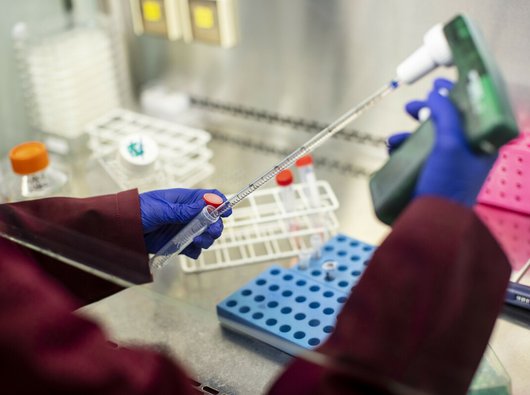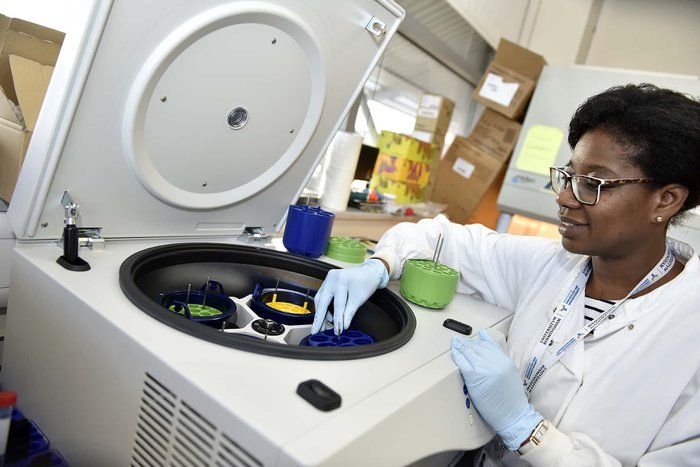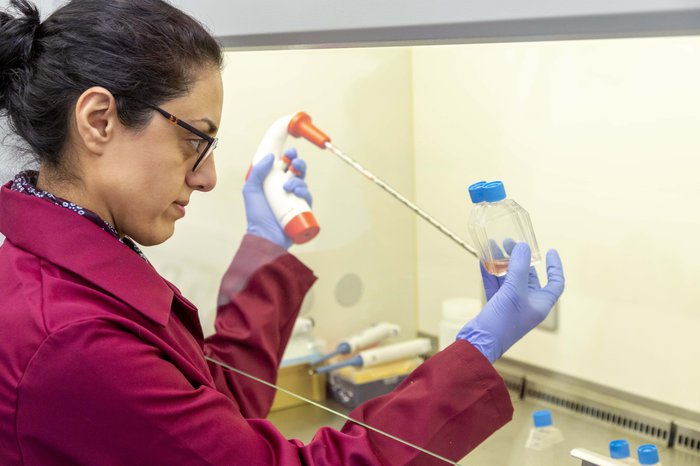The Road to Beating MPN
We've come a long way in treating MPN, and have discovered things that have had a substantial impact on people's quality of life. But there's a way to go and in this blog, Professor Claire Harrison tells us where we're going next.
Professor Claire Harrison
Professor Claire Harrison is a professor of myeloproliferative neoplasms (MPN) and Deputy Medical Director at Guy's and St Thomas’ Hospital in London. In this blog, she tells us how MPN treatment and survival has changed throughout her career, which has spanned basic research to international trial leadership, and how we continue to make progress for people with these diseases.

One of the biggest problems with myeloproliferative neoplasms (MPN), as with many blood cancers, is that they are both rare and hidden. My first encounter with the disease was in 1993 when I met a patient on the ward. By then I’d seen lots of people with leukaemia, lymphoma, and myeloma, but this was the first person with MPN I’d seen, and it felt like we didn’t really have any evidence for how to best to treat her disease as there were few published trials and it there wasn’t a good understanding of how the disease develops.
Essential Thrombocythemia – what’s that?
I always knew I wanted to combine my clinical work with research, and I was interested in haematology as a general discipline, but I ended up focusing on MPN by complete chance. I was chatting to someone who became an important mentor, Professor David Linch, who invited me to carry out research with him in a disease called essential thrombocythemia (ET), which, unbeknown to be at the time, was a type of MPN. I enthusiastically agreed, and then realised I had no idea what that disease was! So, it was a bit by chance that I ended up in this sub-speciality of haematology.
We were diagnosing people based on descriptions from the 1800s
That was in 1995 and I’ve remained in the area ever since. At that time, we were still diagnosing people based on descriptions of the disease from the 1870s. Treatment was a bit of guesswork, too. We’d see someone with a high platelet count and treat them the best we could, but there were no national guidelines and vanishingly few trials to base our plans for treating the disease.
And then we discovered the key driver of these diseases
But things have really changed in the last 25 years, and that’s thanks to research carried out by Professor Tony Green, and others, who found out what was driving these diseases. His research was actually funded by Blood Cancer UK, and he found a gene called JAK2, which was mutated in many types of MPN and we now know that JAK2 is a key driver of disease. This discovery has led to a lot of advances. In 2001, I had led a trial with Tony called the MRC PT1 study, this was a large study involving lots of people with ET. We managed to use samples and linked data collected in this trial, with the discovery of the JAK2 mutation, to learn an incredible amount about how the diseases develop, the role of different mutations and the discovery of other important genes involved in the disease.
This information was then used to develop treatments targeting JAK2 which happened with 2 years of the work from Tony and others in the world, incredibly fast. This is a great example of the current pace of scientific change. For example, when the Philadelphia chromosome was identified in people with chronic myeloid leukaemia (CML), it took scientists 40 years to create a targeted therapy. But following the discovery of JAK2, it took us just two years to create and start testing drugs that specifically targeted this mutation which is staggering.

These drugs led to a drastic change in quality of life
By good fortune I led one of the 2 phase III trials that led to a JAK2 inhibitor called ruxolitinib being approved to treat myelofibrosis (MF) worldwide, which is something I’m immensely proud of. It’s very rare in a cancer context to give someone a treatment that improves their cancer while also improving their quality of life. Chemotherapy, for example, might improve someone’s cancer but this comes at a huge cost to quality of life. Normally, we have to make cancer patients worse before we make them better, but this wasn’t the case here. Ruxolitinib made people live longer and better for example patients who hadn’t been able to have a bath or shower for years because of intense itching could suddenly do this.
Who to treat and who not to?
As amazing as this is, we certainly haven’t solved everything yet for people with MPN. It’s a complicated picture. For some people with more mild disease, who are more rarely troubled by their condition we need to understand when as clinicians we need to intervene and when we don’t, so we can minimise any potential harm from treatment. What we need to be able to do is long term studies as these will help us understand this better, but that’s difficult to do because they take time, and the disease is rare. What we really need is a marker that can predict how someone’s disease is likely to progress, so we know who to treat and who not to. We’re getting there, but we’re not there yet.
Putting people affected at the heart of what we do
It also may not be about getting rid of the MPN completely. We need to focus on what people with MPN really want, which may include other things over and above trying to cure the disease completely. We are working hard on identifying a marker that can tell who will develop a more aggressive type of disease and I think this will really change how we treat patients, as well as of course our quests to find newer treatments.

The beginnings of disease can show decades before someone is diagnosed
The average age that people are diagnosed with MPN is 65, but some interesting research has showed that the mutations that drive the disease happen much earlier than this. Dr Jyoti Nangalia did some work looking at samples from people diagnosed with MPN and found that these changes can be present many decades before a patient develops disease. One patient was shown to have had the changes that drive MPN even before they were born. The fact that this happens means you can imagine trying to prevent the disease perhaps by editing the genes that drive it or targeting inflammation.
Before they develop MPN we now know that many people have something called “clonal haematopoiesis of indeterminate potential”, (CHIP). CHIP puts people at higher risk of developing blood cancers as well as other conditions such as stroke and heart attack, likely due to increased inflammation around the body. If you can detect when someone has CHIP, you can lower the risk of this by intervening early and reducing this inflammation. It would also mean we would know who is at a higher risk of developing MPN, allowing them to be diagnosed earlier and put on treatment quicker. All of this could be incredibly helpful and take us a step closer to improving outcomes for people with the disease.
Support from charities is invaluable for rarer diseases
There’s lots we’re doing to improve things for people with MPN but there are also real barriers. Money is always an issue, as is collecting enough data to study. If we really want to understand the disease then we need to do big studies over several years, possibly even decades. That’s where Blood Cancer UK comes in. Pharmaceutical companies are less likely to invest in rare disease, but charities do and can partner with industry. Charities can also connect researchers across the country and have a strong link to people affected by this disease, helping us understand what people with MPN really want us to change.
Donating to a charity is an investment that keeps giving. It allows us to answer the questions people with MPN want us to answer, to train up the next generation of scientists, and share data across the world so we can move the field forward. I do believe that with support of charities like Blood Cancer UK, we will continue to make improvements for people with MPN and hopefully see a day where no lives are lost from the disease.
Interested in hearing more?
Be the first to hear when we publish the next in the Road to Beating series
We will keep you updated about our work and the ways you can help, including campaigns and events. We promise to respect your privacy and we will never sell or swap your details.
